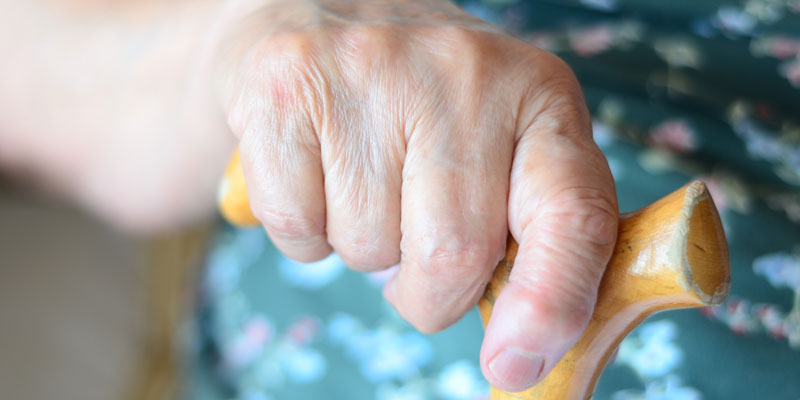Emily Holzhausen is Director of Policy & Public Affairs at Carers UK, which works to improve the lives of carers; across the UK today there are 6.5 million people caring for relatives or friends who are older, seriously ill or disabled. Half of these carers are also juggling full or part time employment, often alongside other family responsibilities. A key part of Emily’s role is ensuring that carers’ voices are heard by policy-makers, employers, the media and the general public.

On 11 September 2014 Carers UK published a new report, Carers at breaking point, which examines the experiences of carers who have been pushed to breaking point by caring without the right support. Based on the experiences of over 5,000 carers, the analysis examines the causes of carer breakdown, the impact of crisis and what support can prevent carers’ mental and physical health breaking down.
Carers UK report: Carers at breaking point
Our research into the experiences of thousands of carers reveals that many are being pushed to the brink, suffering exhaustion and physical and mental breakdown as they care without the support they need.
We found that 6 in 10 of those caring for an older, disabled or seriously ill loved one have reached breaking point – with a quarter needing medical treatment as a result, 63% suffering depression and 79% reporting anxiety. 1 in 9 carers who had suffered breakdown told us that it resulted in the person they care for being rushed to hospital or needing emergency social care while the carer recovered. 46% fell ill but had no choice but to continue caring – unable to access additional help from social care services or the NHS.
Daily battle with exhaustion and stress
For millions of families, caring for older or disabled loves ones means a daily battle with exhaustion and stress as they struggle to care for seriously ill partners, severely disabled children or ageing parents without enough help or any time off. A fifth of carers were receiving no practical help at all – leaving them unable to take a break from caring or even get a good night’s sleep.
Women hit disproportionately hard
This is an issue that affects carers across the spectrum, but with women making up 60% of those caring for 50 hours or more every week, and women being more likely to reduce their working hours and give up work to care, it is an issue that hits women disproportionately hard.
And with essential support for carers seeing deep cuts, even greater numbers will face crisis. Funding for social care services in England has been cut by £3.5 billion, and carers’ benefits will be cut by £1 billion by 2018. This is unsustainable.
Support needed to combine work and caring
As our ageing population means a growing number of us will take on caring responsibilities for older or disabled loved ones, our society cannot afford for caring to result in breakdown. It brings costs to our health services when both carers and the person they look after end up in hospital. It affects our businesses and economy when carers have to leave work when they cannot get the support they need to combine work and caring.
This is a challenge all political parties must respond to at the election: how will they act to support our families when we need to care for ageing parents or disabled loved ones?
Read the full report at:
www.carersuk.org/for-professionals/policy/policy-library/carers-at-breaking-point-report
linkedin.com/company/carers-uk





